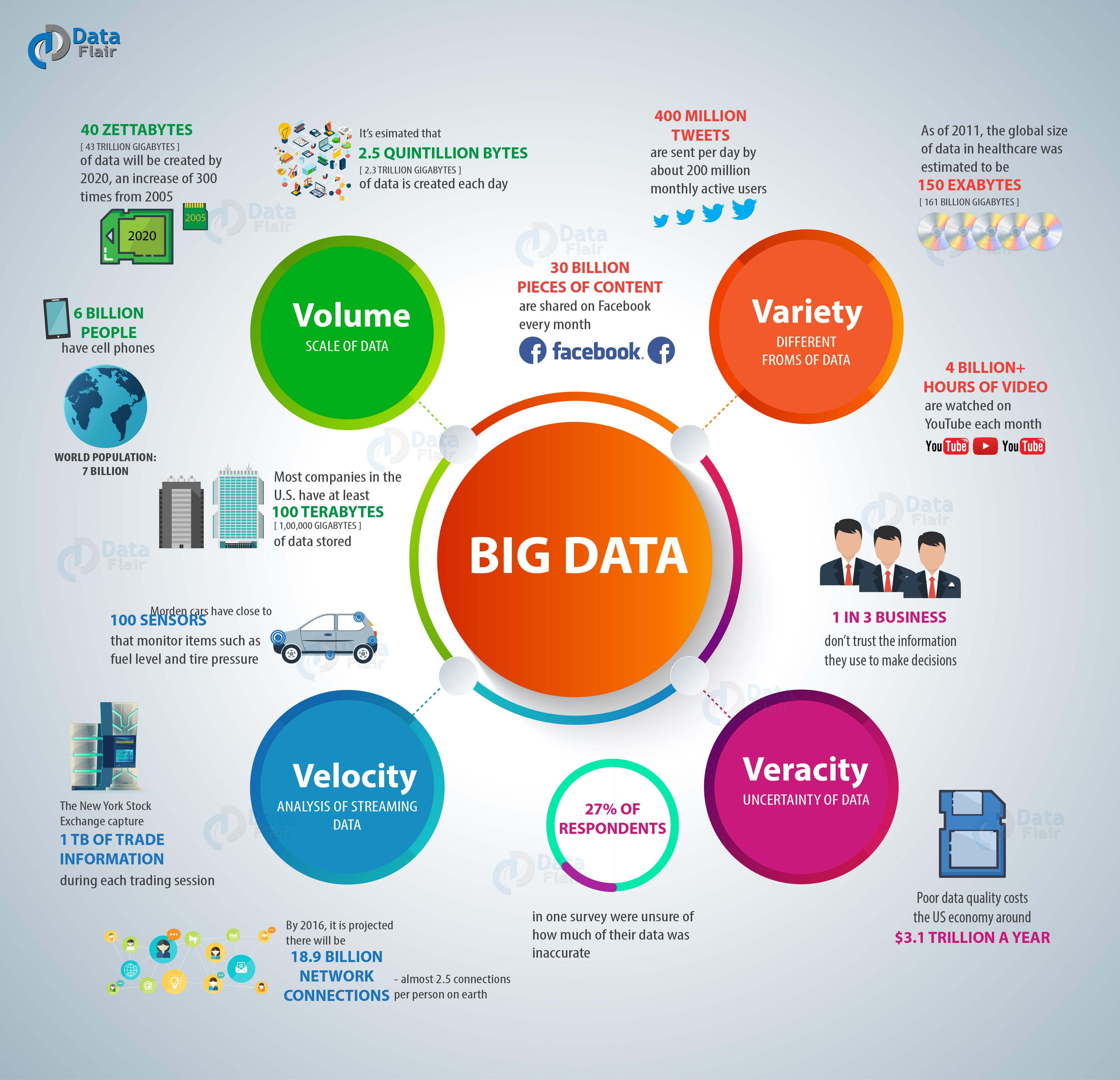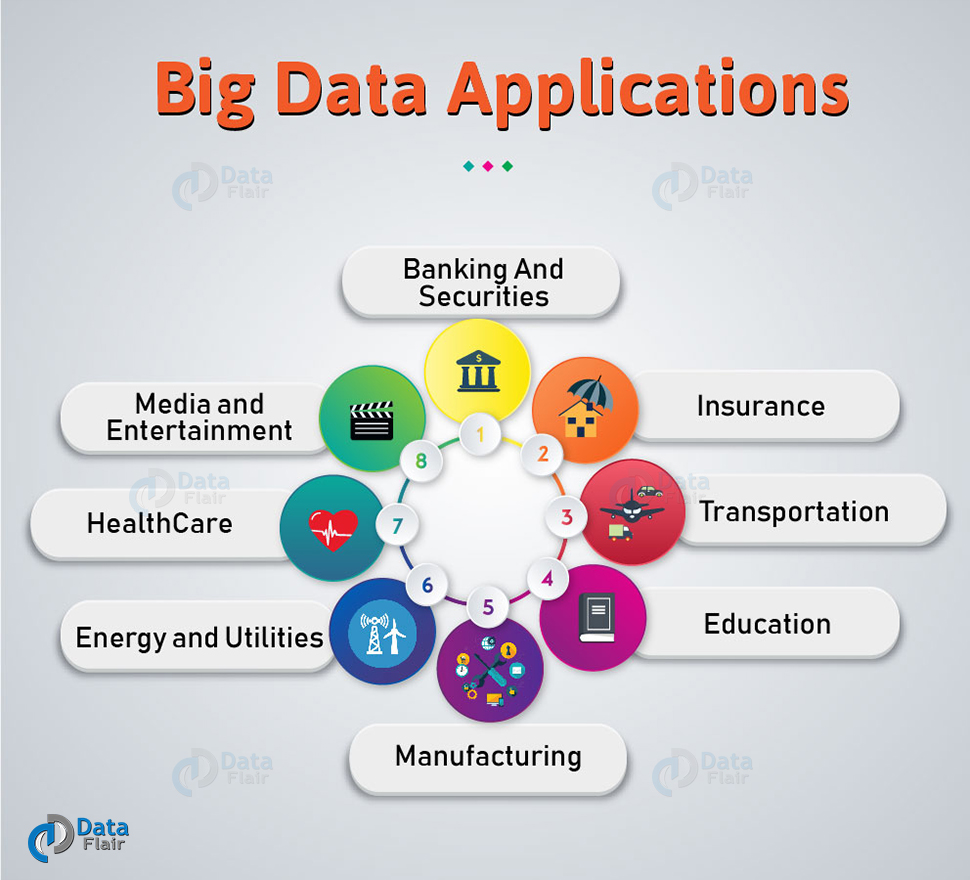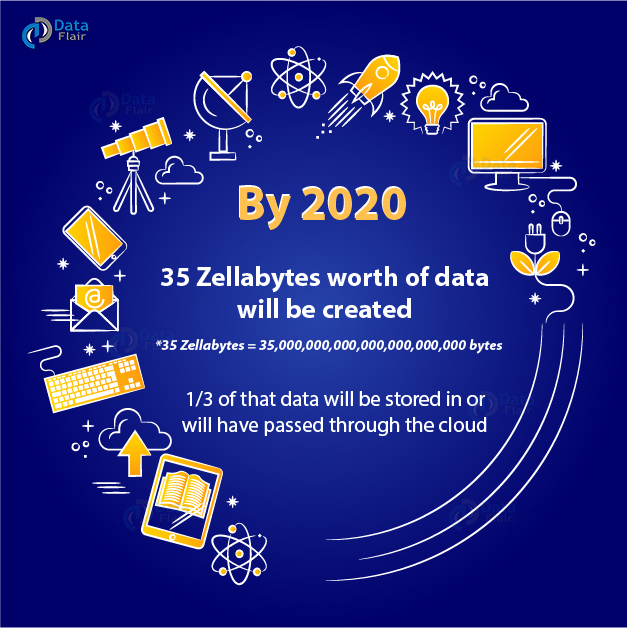The Buzz of Big Data
There are many concepts, theories, and facts related to big data and its popularity — which is what this article is all about. I’ll start with an introduction to big data and then take at look at its future.
Join the DZone community and get the full member experience.
Join For FreeBig data is the big buzz nowadays and there are no second thoughts on that. Basically, big data is data that is generated in high volume, variety, and velocity. There are many other concepts, theories, and facts related to big data and its popularity — which is what this article is about. I’ll start with a brief introduction to big data and then take at look at its future.

What Is Big Data?
In simple words, big data is defined as mass amounts of data that may involve complex, unstructured data, as well as semi-structured data.
Previously, it was too difficult to interpret huge data accurately and efficiently with traditional database management systems. But big data tools like Apache Hadoop and Apache Spark make it easier. For example, a human genome, which took about ten years to process, can now be processed in just about one week.
How Big Is Big Data?
It's not possible to put a number on what quantifies big data, but it generally refers to figures around petabytes and exabytes. It includes vast amounts of data sources gathered from a given company, its customers, its channel partners, and suppliers, as well as external data sources.
The Astonishing Growth of Big Data
As digitalization is rapidly increasing, so is the demand for big data — especially because of the sudden rise in the use of electronic devices, the Internet, sensors, and technology of capturing data from the world we live in.
However, data in itself is not something new. Before computers and databases, we had paper transaction records, customer records, and archive files as data. Databases, spreadsheets, and computers gave us a way to store and organize data on a large scale and in an easily accessible way. That makes the instant availability of information at the click of a mouse.
Every two days, we create as much data as we did from the beginning of time until the year 2000 from the traditional databases mentioned above. The amount of data we’re creating continues to increase rapidly. Data is predicted to go from around five zettabytes today to 50 zettabytes by 2020.
It is very easy to generate data today whenever we go online, when we carry our GPS-equipped smartphones, when we communicate with our friends on social media, or even while we shop. In simple words, we can say our every step is leaving a digital footprint. As a result of this, the amount of machine-generated data is rapidly increasing, too.
How Does Big Data Work?
The principle of big data is very simple: The more knowledge you have about anything or any situation, the more accurate predictions you can make about the future.
Big data projects use cutting-edge analytics involving artificial intelligence and machine learning and tools like Apache Hadoop, Apache Spark, NoSQL, Hive, Sqoop, etc. to process messy data. They process the data generated from various mediums like your social media activities, search engines, sensors, etc. and extract insights from it, which helps in making decisions and predictions for various big data applications.
Usage of Big Data
There is no second thought in saying that big data is revolutionizing the world of business across almost every industry. As I said earlier, Companies can accurately predict what specific segments of customers will want to buy, and when, to an incredibly accurate degree. Also, big data is helping companies run their operations in a much more efficient way.
Apart from business, big data is helping to change our world in many other ways.

Let’s discuss some of the real-world applications of big data.
Improving Healthcare
In the medical industry, big data is helping to analyze vast numbers of medical records and images for generating patterns, which helps to spot diseases early and take required actions for it.
Preventing Natural and Man-Made Disasters
Big data helps organizations forecast where earthquakes are likely to strike next and take the necessary precautions. Big data helps provide real-time information to residents when a disaster approaches or is about to approach. It is also possible to plan the future reactions of the population at the time of the disaster.
Preventing crime
On the basis of intelligence and public datasets, police forces are also using data-driven strategies to deploy resources more efficiently. The technology collects the data of ordinary individuals like their jobs, hobbies, consumption habits, etc. and will flag any unusual behavior that could signal a potential criminal.
Big Data Concerns
Big data offers exceptional insights and opportunities to us. However, it also addresses few concerns and questions, such as the following.
Data Privacy
There is no doubt that we benefit from many breakthroughs due to big data-powered apps and services, but it could cost our privacy. Companies need to address this concern in their big data projects. How could we forget the infamous Facebook data leakage case?
Security of Data
Every time we click "I agree" while logging in, we give several permissions to the apps to access data on our devices and web accounts. But can we trust these companies to keep our data safe? Companies already struggled with data security even before the complexities of big data.
Data Discrimination
While this technology helps businesspeople become better marketers and service providers, it also allows them to discriminate. What if all the insights that are made out of big data make it more difficult for some population to access the information they need? This question was raised by the Federal Trade Commision report Big Data: A Tool for Inclusion or Exclusion?
Looking to the Future

Now, we know that data is changing our world and also the way we live at an exceptional rate. If Big Data is capable of all this today, what will it be capable of tomorrow? The amount of data will definitely increase and analytics technology will become even more advanced.
Conclusion
To use a world of information in the simplest manner and to enrich the user experience, we use big data. Big data results in making processes efficient and also hastens the decision-making process. It simply refers to innovation or adding creativity to existing processes.
And when it comes to businesses, big data helps to manage, analyze, discover, and utilize knowledge. It also helps to use the data in a timely and scalable manner. More precisely, big data has made decision-making for organizational growth very accurate. That is the reason for the big data buzz.
Opinions expressed by DZone contributors are their own.

Comments